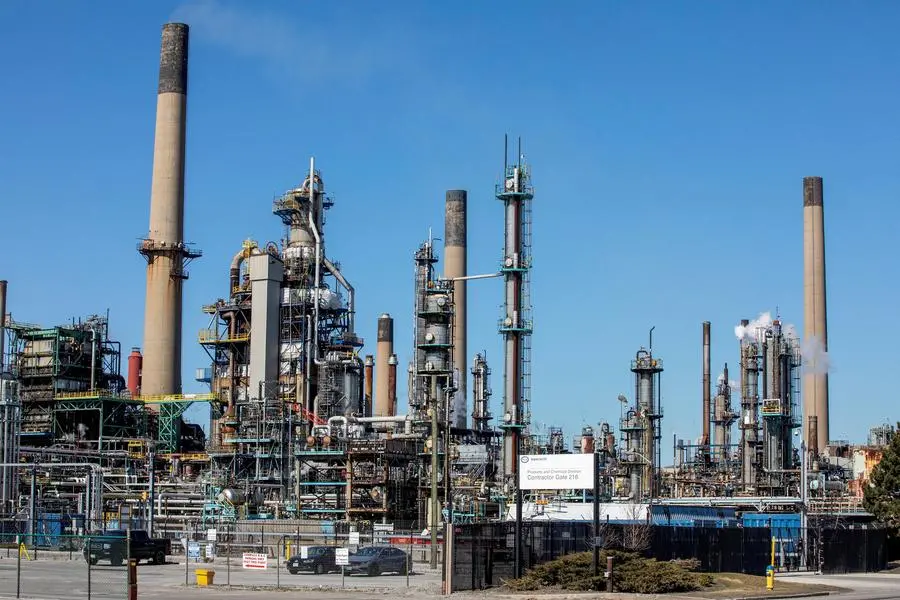PHOTO
Oil prices surged on Wednesday as tension escalated in the Middle East after hundreds were killed in a blast at a Gaza hospital, sparking concerns about potential oil supply disruptions from the region.
Brent crude futures gained $2.07, or 2.3%, to $91.97 a barrel at 0225 GMT. West Texas Intermediate crude (WTI) futures were up $2.26, or 2.6%, at $88.92 a barrel.
Markets factored in risk premiums after about 500 Palestinians were killed in a blast at a Gaza City hospital on Tuesday that Israeli and Palestinian officials blamed on each other.
Jordan then cancelled a summit it was to host with U.S. President Joe Biden and Egyptian and Palestinian leaders.
"The cancellation of a summit between Biden and Arab leaders reduces the likelihood of a diplomatic solution to the Israel Hamas conflict," Vivek Dhar, an analyst at Commonwealth Bank of Australia, said in a client note.
Markets are nervous about a threatened Israeli ground offensive in Gaza.
"A long occupation looms as the scenario that pushes Brent oil futures above $US100/bbl because it raises the risk that the Israel Hamas conflict expands and potentially draws in Iran directly," Dhar said.
Biden is set to visit Israel on Wednesday to show support for the country in its war with Palestinian Islamic Jihad militant group Hamas. The White House said he will make clear he does not want the conflict to expand.
Also supporting oil prices, U.S. crude stocks fell by about 4.4 million barrels in the week ended Oct. 13, according to market sources citing American Petroleum Institute figures on Tuesday. That was much steeper than a 300,000 barrel draw that analysts had forecast.
Official U.S. government data is due later on Wednesday.
On the demand side, China's economy grew faster than expected in the third quarter, official data on Wednesday showed, suggesting the recent recovery may carry enough steam to reach Beijing's full-year growth target.
Meanwhile, U.S. retail sales increased more than expected in September, spurring expectations of another interest rate hike by the Federal Reserve by year-end. Interest rate hikes to curb inflation can slow economic growth and reduce oil demand.
Venezuela's government and its political opposition on Tuesday agreed to electoral guarantees for 2024 presidential elections, paving the way for possible U.S. sanctions relief that could boost oil supplies.
The U.S. has imposed sanctions on oil exports from Venezuela since 2019 and while sanctions relief is expected to boost oil supply oil flow, analysts expect any increases from the country to take time due to a lack of investment. (Reporting by Arathy Somesekhar and Muyu Xu; Editing by Sonali Paul)





















